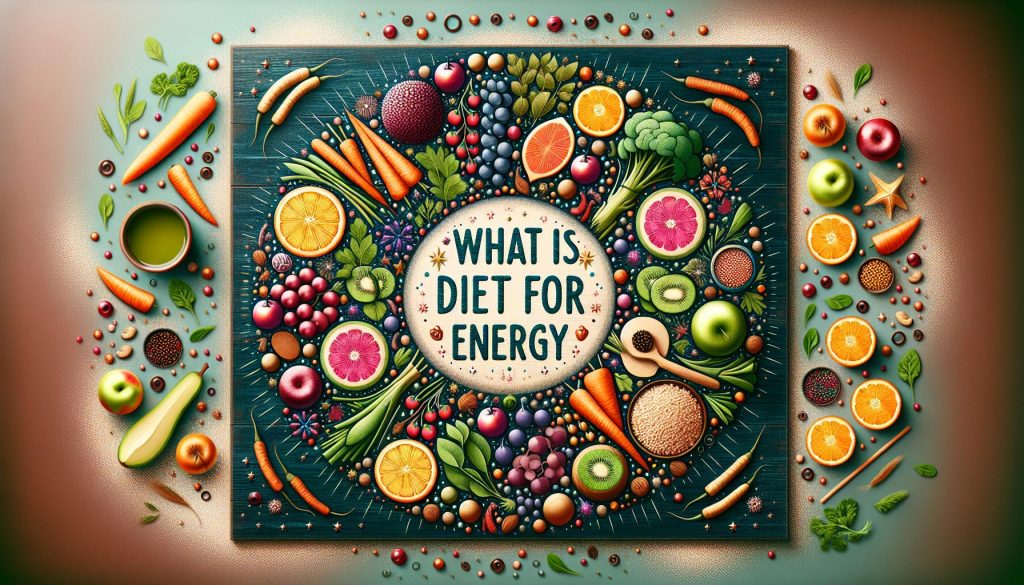
Introduction
What diet is good for energy? It a query that lingers in the minds of many health-conscious people, sifting through an avalanche of health information available on the internet. Simply put, diets rich in natural, whole, unprocessed foods are the secret weapon for a vibrant, energetic lifestyle. A diet chock-full of fruits, veggies, lean proteins, whole grains, and healthy fats furnishes your body with the fuel needed for optimum energy levels. In the following paragraphs, we will delve deeper into specific diets and the types of food that promote energy, dissect how they work in our bodies and list down the benefits they bring to our overall health.
The Plant-Powered Path
Embracing a plant-based diet is like privy to an ‘Elixir of Energy.’ High in fiber, vitamins, minerals, and other essential nutrients, plant-based diets also lower the risk of chronic diseases, thus enhancing our overall health and energy levels. Foods like quinoa, brown rice, or whole wheat bread provide long-lasting energy, while fruits and vegetables are instrumental in maintaining our body’s energy levels throughout the day.
The Energy Equation of Whole Grains and Fruits
Whole grains are the royalty of the food kingdom when it comes to energy. They are slowly digested, providing a steady release of glucose that fuels your muscles and brain, keeping you energized. Fruits, on the other hand, are the sprinters in the race, providing a quick source of energy, thanks to their natural sugar and fiber content.
Lean Proteins and Healthy Fats
Nothing screams ‘energizing diet’ like lean proteins and healthy fats. Including snacks high in protein such as yogurt, eggs, nuts, or a piece of cheese can help maintain steady energy levels. Remember, when it comes to fats, it’s quality over quantity. Healthy fats like avocados, nuts, seeds, and olive oil can help slow down the absorption of glucose into your bloodstream and prevent energy crashes.
Unraveling the Power of Protein and Healthy Fats
Protein takes longer to breakdown in your body, providing a sustained source of energy, keeping you full, focused, and fatigue-free for a longer duration. Healthy fats fuel your body while nourishing your brain, heart, and cells, thus fostering increased endurance and resilience.
Hydrate! Hydrate! Hydrate!
Although not a ‘diet,’ hydration plays a quintessential role in maintaining high energy levels. Apart from water, green tea, coffee, smoothies, and infused water recipes can also keep you hydrated and energetic all day long. Remember, dehydration can cause fatigue, reduced concentration, and headaches, so it’s imperative to keep that water bottle handy!
The Relationship between Hydration and Energy
Water propels our metabolism, energizes our muscles, and aids in key functions in our bodies. When we are dehydrated, our bodies have a hard time performing these functions, which could result in fatigue. Therefore, drinking ample amounts of water not only keeps you hydrated but also serves as fuel for your body’s everyday functions.
Conclusion
Creating an energy-boosting diet isn’t rocket science. It’s all about learning to listen to your body and fueling it with high-quality, nutritious food. Embrace a diet rich in whole, unprocessed foods, lean proteins, healthy fats, and ensure to stay hydrated, and you will have your engine purring like a finely-tuned sports car.
Frequently Asked Questions
1. What foods give you instant energy?
Foods like bananas, apples, dark chocolates, and brown rice are packed with nutrients and can provide instant energy.
2. How can I boost my energy naturally?
Consuming whole, unprocessed foods, staying well-hydrated, and maintaining active through regular exercise can help boost your energy levels naturally.
3. Are energy drinks good sources of energy?
While energy drinks may provide a quick boost, they can lead to energy crashes. Natural sources of energy like whole foods are always a healthier choice.
4. What is the healthiest drink for energy?
Green tea is one of the healthiest drinks for energy. It contains a small amount of caffeine, which can help enhance brain function and mood, and also has rich antioxidants.
5. Does protein or carbs give you more energy?
Both protein and carbs play a role in energy production. Carbs are quick sources of energy, while protein provides sustained energy over a longer period.



